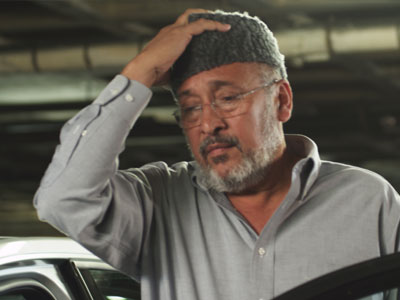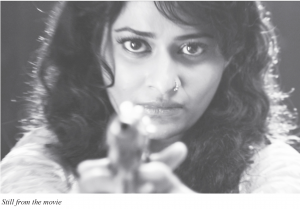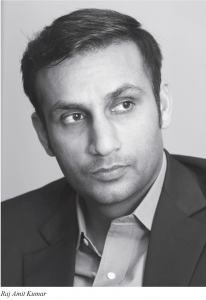Why did you think it was important to deal with a subject matter like homosexuality and religious fundamentalism? Why should people see this film?
Because we need to question and try to locate the roots of intolerance, discrimination and violence. It is important to show what homosexuals face in India and how unfair, violent, brutal acts are committed on them. It is also important to show how religious intolerance is creating an even more violent world today. Just because someone belongs to a certain sexuality or religion, they are not necessarily one kind of people. Their identities are not one-dimensional.
People should see the film because these are every day issues and problems we face and we need to take them head on and try to find solutions. Also, it is an intense fast paced thriller and a dramatic rendition which audiences find very engaging.
How were you expecting ‘Unfreedom’ to be received in India? Did you see the ban coming?
I know that I am dealing with tough subjects and I also know that my way of dealing with them is very raw and blunt. But that is who I am as a filmmaker. I believe in absolute freedom of expression and I imagined that most Indians do as well. I knew that censorship authorities in India may have issues with some nudity but I did not think that we have gone that regressive as a country that we will tell the people of India not to discuss certain ideas. So no, I did not expect a ban.
I hoped that Indian youth will stand for the film and like the film. This is actually proven true by two screening we did at IIT Bombay and IFFK(International Film Festival of Kerala). There was an overwhelming response. Indian youth is much prepared to discuss and debate any idea, in fact; they want to address tough subjects. However, our censor guardians are not able to handle what our youth wants to address. Our censor board says that the common Indian public is not “evolved”. Actually it is the other way around, our censor board needs to grow up and “evolve”. I would rather say they should just dissolve and get out of people’s way.
How was it working with the actors of the film?
Learning experience. I worked with veteran Victor Banerjee who has been directed by the likes of David Lean, Satyajit Ray, Mrinal Seri; with expert professional Adil Hussain from Life of Pi; and with very talented newcomers like Bhanu Uday, Preiti Gupta, Bhavani Lee, and several other small characters played by very fine actors such as Ankur Vikal, Samrat Chakraborty, Seema Rahmani, Danae Nason, Andrew Plainer, Ally Khan. This is an amazing lineup ofactors. Every day was a learning experience while directing different styles and personalities of actors.
Do you feel any publicity is good publicity?
The conversations about the form and content of the film can only happen after someone sees the film, so not really. When people are not allowed to see this film, then they will not be able to discuss the material but pass superficial comments on the film based on a trailer or what is written about it getting banned. Is it giving the film publicity ? yes, of course.
You don many hats, which one is your favorite?
Directing.
What’s next for you?
Two projects. ‘Black Boots’, the story of the first Black Marines who were trained in segregated boot camps at the time of World War II. ‘Ayodhya’, a Shakespearian drama set in the 1992 Babri Mosque Demolition politics of India.
“It is important to show what homosexuals face in India and how unfair, violent, brutal acts are committed on them. It is also important to show how religious intolerance is creating an even more violent world today.” says Raj Amit Kumar





